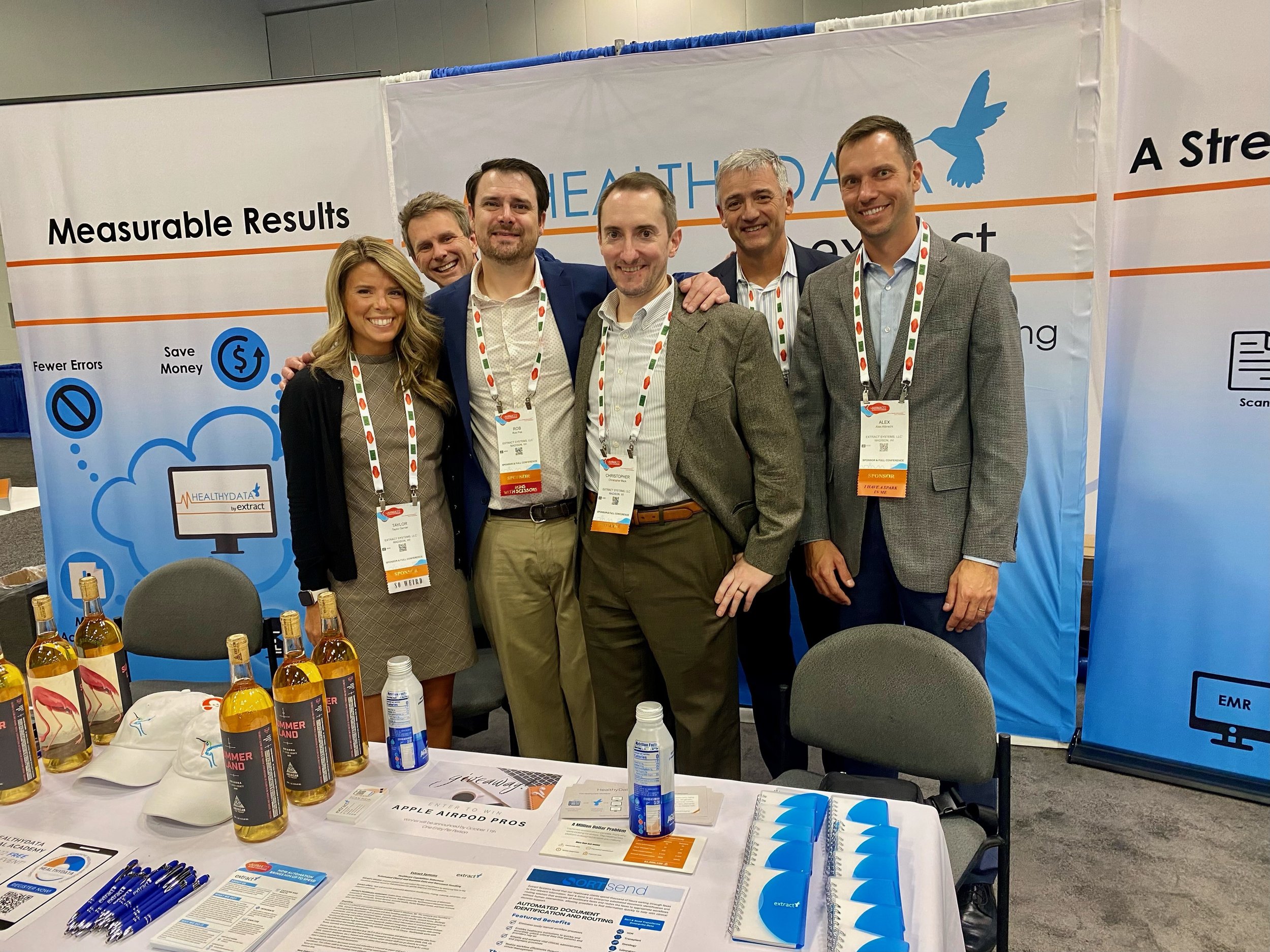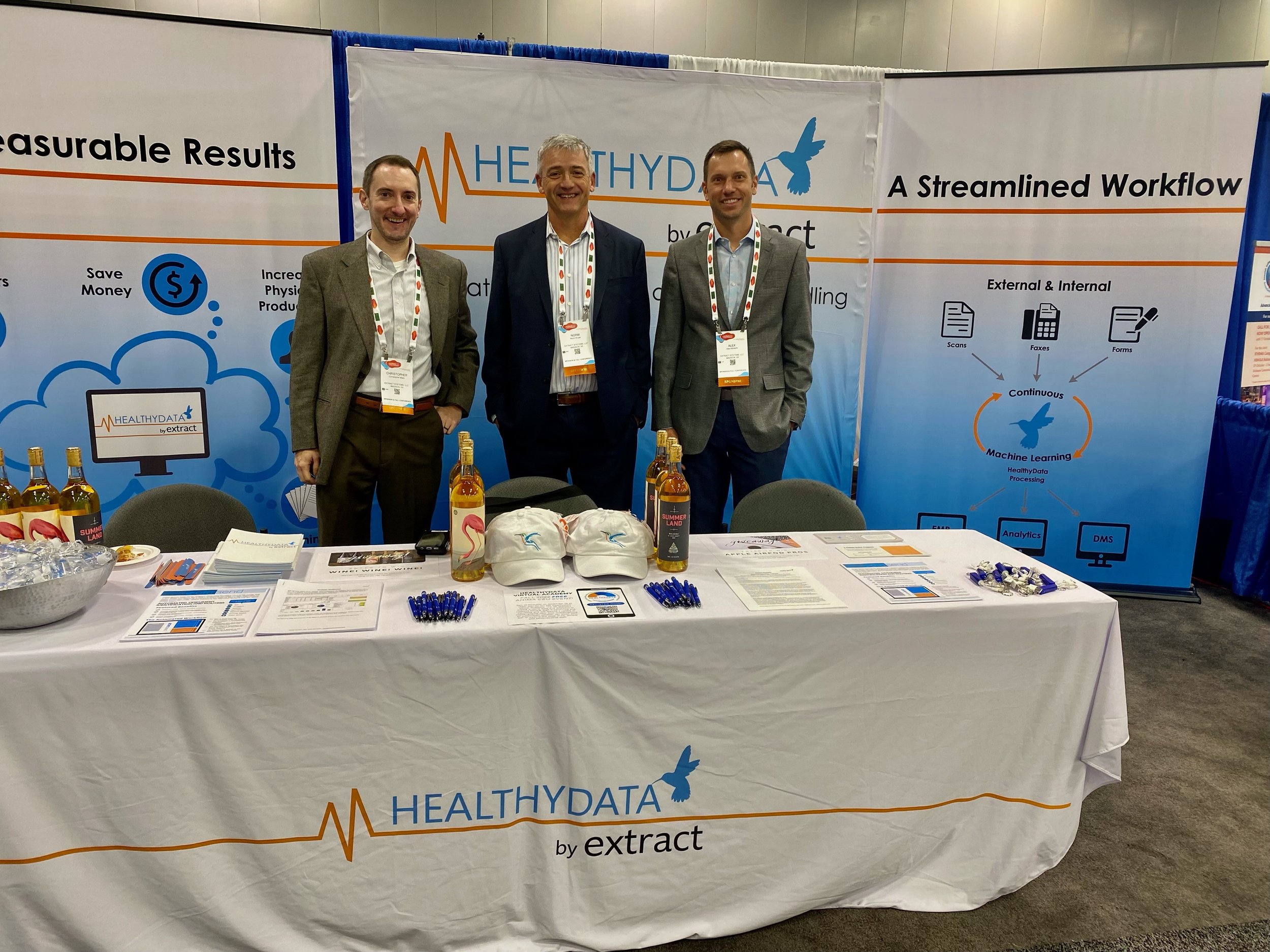Fresh off a flight from Columbus, OH and I’m sitting here reflecting on life slowly starting to shift back to what my 2019-self would have considered ‘normal.’ It’s been three years since we’ve all been together at AHIMA. In that time, we’ve collectively lived through a global pandemic, adjusted our professional lives, and broke in new virtual realities. We’ve experienced the highs and lows of the “Great Resignation.” And through it all, we continue to ride the waves of an ever-changing healthcare industry where health data and information, central to everything we do, continue to explode.
In that reflecting, I wanted to round up a few key trends that I took away from sessions, vendors, and just in talking with HIM professionals.
Environmental
HIM is highly sensitive to changes in the healthcare industry, and with the COVID-19 pandemic, many HIM professionals found themselves in a position where they had to be able to readily understand and assimilate healthcare changes as they occur (at times, overnight). Responding rapidly to these changes and are highly adept at meeting the evolving need for real-time health information at the point of care.
Leaning Into New Technology
HIM professionals are already addressing many factors influencing the healthcare industry, including changes in technology and its impact on delivery of patient care; consumer-driven healthcare and the movement for patient-centered care; and the value placed on health information for functions in healthcare organizations outside of medical records, such as quality improvement and other administrative functions, revenue cycle management and financial and strategic planning.
The pandemic only heightened this need to lean into new technologies. The role that HIM professionals play is evolving, and many of the paper forms of data are being eliminated as healthcare organizations convert to electronic health records (EHRs). The influence of this growing shift toward technology is already being felt across the industry, as many of the past roles of HIM centered on paper medical records are eliminated and replaced by new roles focused on patients’ electronic health records.
Evolving Roles
Healthcare providers and HIM departments are increasingly utilizing health information for a variety of decisions and benchmarking measurements, increasing their reliance on HIM professionals to provide data management and analysis while ensuring the quality and security of information. This growing demand for HIM services in a variety of functions has resulted in the profession embracing a broader set of roles. As a result, HIM professionals often specialize in a particular area of expertise, in addition to being trained in a core set of HIM skills. HIM professionals are becoming:
Standard-setters for electronic health records and other emerging technologies
Educators to patients, providers, and administrators about privacy, content, access, and interpretation of records
Consumer advocates who work with patients to help them access and understand the information in their records and control their usage
Experts who understand the structure and content of patient records and their multiple uses
Data experts involved in abstracting patient records to understand and improve clinical outcomes and enhance economies in administrative processes
Brokers of information who understand where information resides, how it can be retrieved, and the limits or boundaries on usage including privacy and security issues
Advocates for quality records and the monitors of compliance with information standards and regulatory requirements
Informaticians who support clinical researchers and business analysts
Data analysts who investigate and compile data for different purposes, including clinical research, data auditing, quality assessment, cost estimation, risk assessment, physician practice monitoring, management of resources, and reimbursement mechanisms.
As the HIM field has evolved from medical records management to this wide range of roles and responsibilities, HIM staff are playing an increasingly critical role in a variety of organizations throughout the healthcare industry. Within any given healthcare organization, HIM specialists are no longer centralized in one single department; but rather are applying their expertise across entire organizations. As a result of these expanding roles, there is a growing demand for skilled, trained HIM professionals throughout the healthcare industry. HIM academic and continuing education programs are expanding and adapting to meet the industry’s demand for a robust and dynamic HIM workforce.
Here at Extract, we provide solutions to assist in automating document and data workflows that are rich in important medical data needed to effectively diagnose and treat patients. Extract automates the abstraction of large patient records and delivers to the nurse or the physician an index of document types and critical data so that clinical staff can immediately find the information needed.
If you’re interested in seeing how our software can deliver you discrete results and save your clinicians time, please reach out and we’d be happy to have an introductory call or show you a demonstration of our software.
(FREE) HEALTHYDATA VIRTUAL ACADEMY - FALL 2022 CEU SESSION
Are you looking for additional CEU’s, or just seeking education from HIM professionals? Join us (virtually) on November 1st at 10am (cst) for our Fall HealthyData Virtual Academy. The fall session’s theme is Using Data and Analytics to Improve Clinical Staff Productivity and Flexibility and will featured a variety of topics ranging from how implementing an automation solution can boost your ROI to making the most of our clinical and administrative staff.
The event is free and will offer up to two AHIMA approved CEU credits.
About the Author: Taylor Genter
Taylor is the Marketing Manager at Extract with experience in data analytics, graphic design, and both digital and social media marketing. She earned her Bachelor of Business Administration degree in Marketing at the University of Wisconsin- Whitewater. Taylor enjoys analyzing people’s behaviors and attitudes to find out what motivates them, and then curating better ways to communicate with them.










